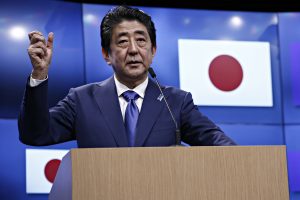Ishiba Shigeru last month won the race to become the next Liberal Democratic Party (LDP) president, and thus the next prime minister of Japan. His ascendancy marked a major break. For more than 20 years since the Mori Yoshiro administration, the Seiwa Political Analysis Council (or Seiwa Kai for short, the faction of the former prime minister and LDP heavyweight Abe Shinzo) has been at the center of LDP politics. Excepting the period during which the Democratic Party of Japan (DPJ) held power, every Japanese government this century has either come from the Seiwa Kai or has governed with the faction’s support.
Although the Seiwa Kai is now formally dissolved, it still does exist, more or less, as a group within the LDP, and the results of this election mean that for the first time in more than two decades, the presidential candidate backed by Seiwa Kai politicians did not win, and Ishiba’s Cabinet does not include Seiwa Kai politicians. One could even argue that the new administration has made evident its antagonism toward the Seiwa Kai, for example with the appointment as minister of internal affairs and communications of Murakami Seiichiro, a critic of Abe when the latter was prime minister.
Why the eclipse of the Seiwa Kai? One major factor is obviously Abe’s assassination. Moreover, several other senior members have been arrested in political funding scandals. As noted, the faction has been dissolved and its activities have been effectively suspended. Diet members involved in political funding issues have not been approved for the House of Representatives election to be held at the end of October 2024, and it has become difficult for the so-called Abe children and others with few successful elections under their belt to even run for office.
Seiwa Kai politicians cannot return to the LDP unless they are elected, and if they lose, that might spell the end of their political careers. Those who were central figures in the Seiwa Kai group are no exception, and even Hagiuda Koichi, a former minister and chairman of the LDP’s Policy Research Council, is said to be at risk of losing his seat.
The defeat of candidate Takaichi Sanae in the LDP presidential election perhaps came as a relief to China and South Korea. Takaichi had the support of conservative politicians such as the Nippon Kaigi (Japan Conference) and had pledged to visit Yasukuni Shrine if she became LDP president and prime minister. However, the inauguration of the Ishiba administration and the recent circumstances of the Seiwa Kai politicians might have shaken Taiwanese President Lai Ching-te. After all, the Seiwa Kai has always been a political faction with strong ties to Taiwan, so that the chain of Seiwa Kai administrations in the 21st century has not been unrelated to advances in Japan-Taiwan relations.
The realization of Japan-Taiwan 2+2 (the diplomatic and defense dialogue between Taiwan’s Democratic Progressive Party and Japan’s LDP) was surely greatly influenced by the Seiwa Kai, the largest faction in the LDP. Many LDP Diet members also visited Taiwan, with frequent interactions among parliamentarians. Lai has also had a close friendship with former Abe since his time as vice president. When Abe was assassinated, Lai immediately traveled to Japan as incumbent vice president to visit the Abe family and pay his respects.
Even after Abe’s death, Hagiuda and several other Seiwa Kai Diet members deepened their relationship with the DPP government. Of course, numerous Diet members, including Ishiba himself, have also visited Taiwan, but Abe and his associates were especially close with Lai. Now, however, the Seiwa Kai politicians are no longer the main cast members of the Japanese political arena, a change that has coincided with the inauguration of the Lai administration.
In September 2024, Lai announced new appointments relevant to Taiwan’s Japan policy. Lee I-yang, the former vice president of the Examination Yuan, was appointed as Ambassador of Taiwan to Japan. He does not necessarily have a close relationship with Japan, but he is close to Lai. Meanwhile, Ma Yung-cheng, a National Security Council advisory member, will be in charge of relations with Japan together with Chiou I-jen, the senior adviser to the President. Ma has at least had a few opportunities to be in charge of Japan-related events. Chiou was responsible for relations with Japan during the Tsai Ing-wen administration as chairman of the Taiwan–Japan Relations Association until 2022, and so is a symbol of policy continuity. At the same time, Ma is a waishengren (referring to those Taiwanese who arrived as migrants between the end of World War II and the end of the Chinese Civil War) and although he hardly is a Japan expert, the trust he enjoys from Lai is very strong.
It does appear that Lai is deliberately appointing close colleagues to take charge of Japan policy. With people he can trust and whom he can easily direct personally, he can seek to replace relations with Japan centered on Seiwa Kai politicians by rebuilding relations among politicians, including those from other political groups, and among the administrative institutions responsible for continuity.

































